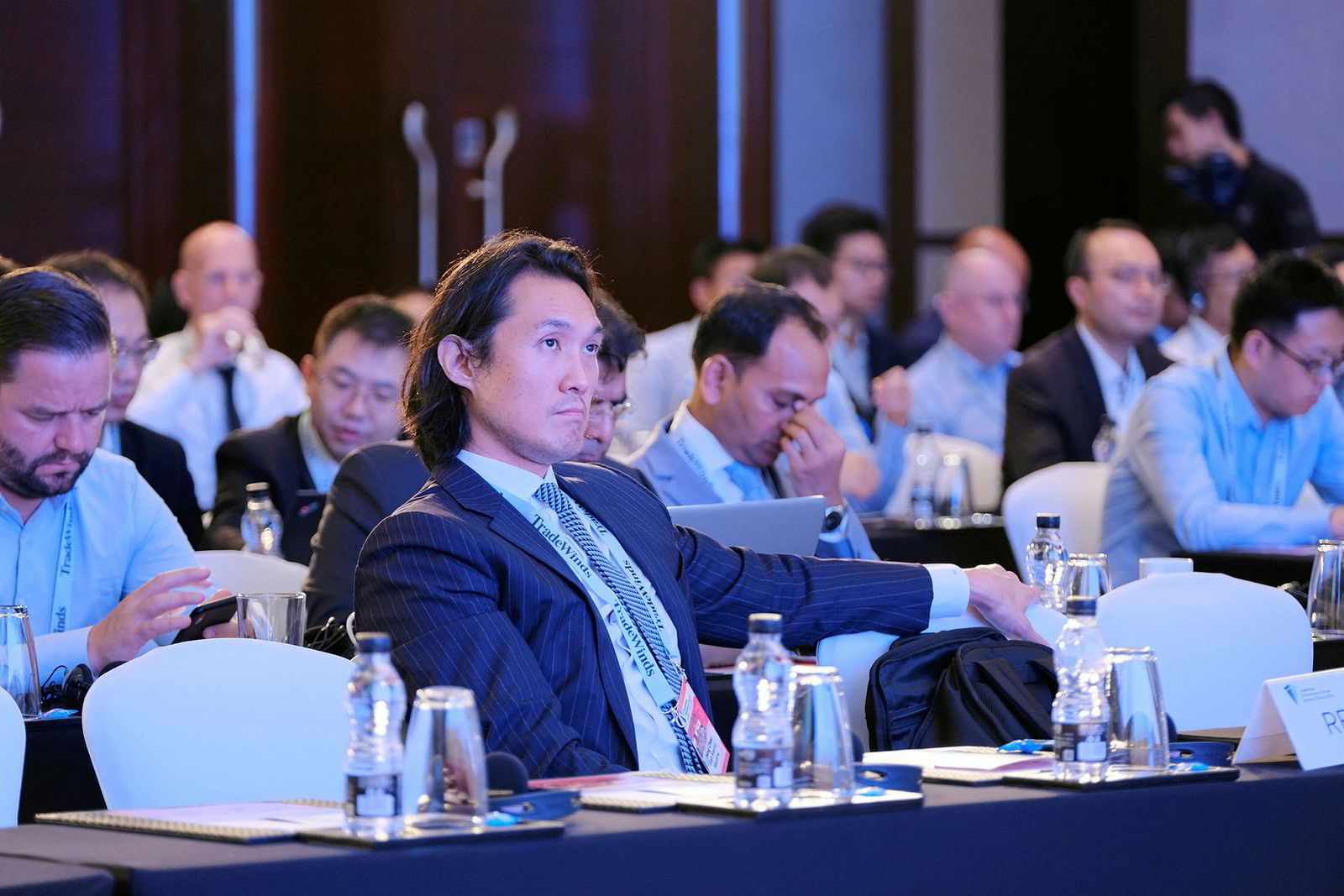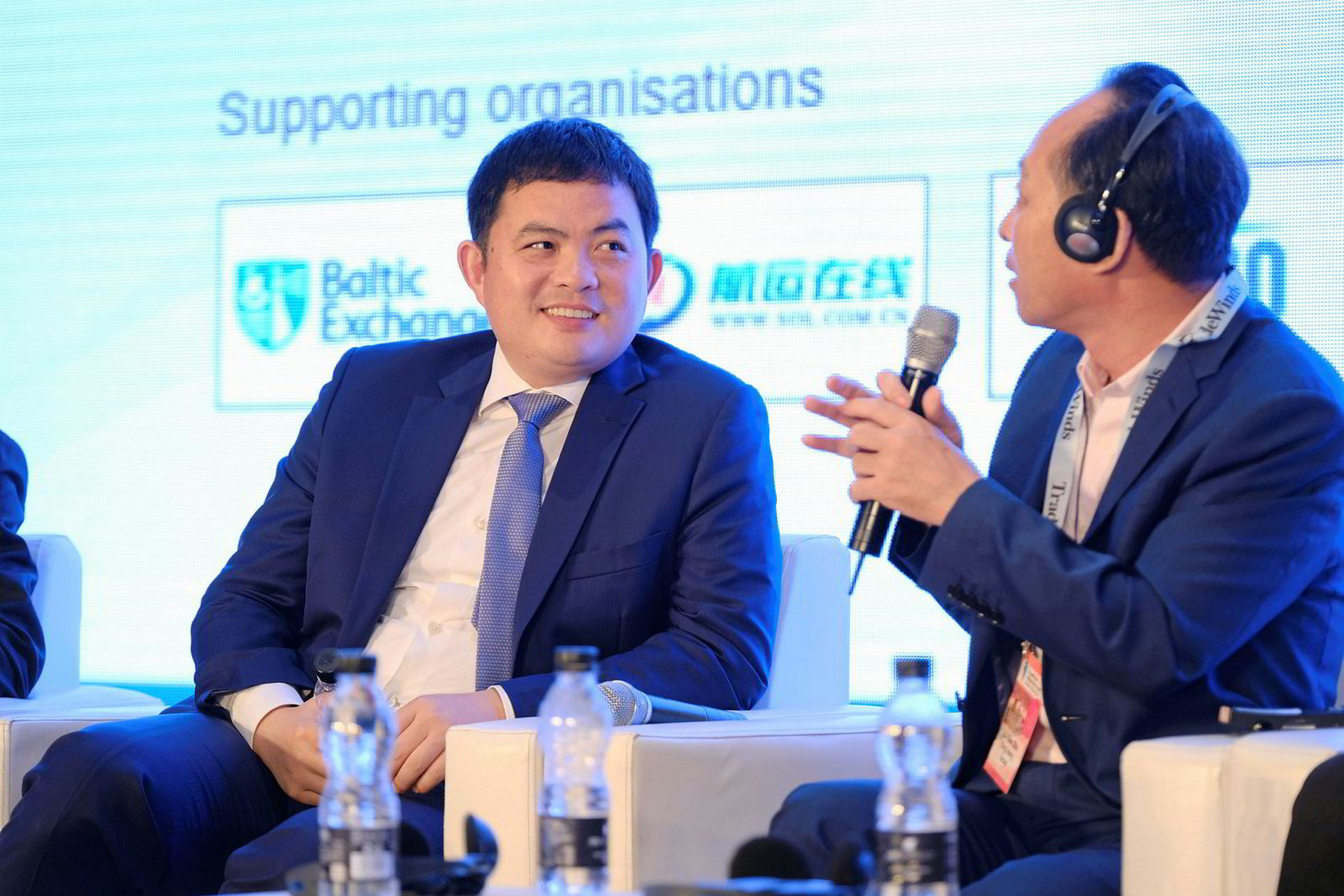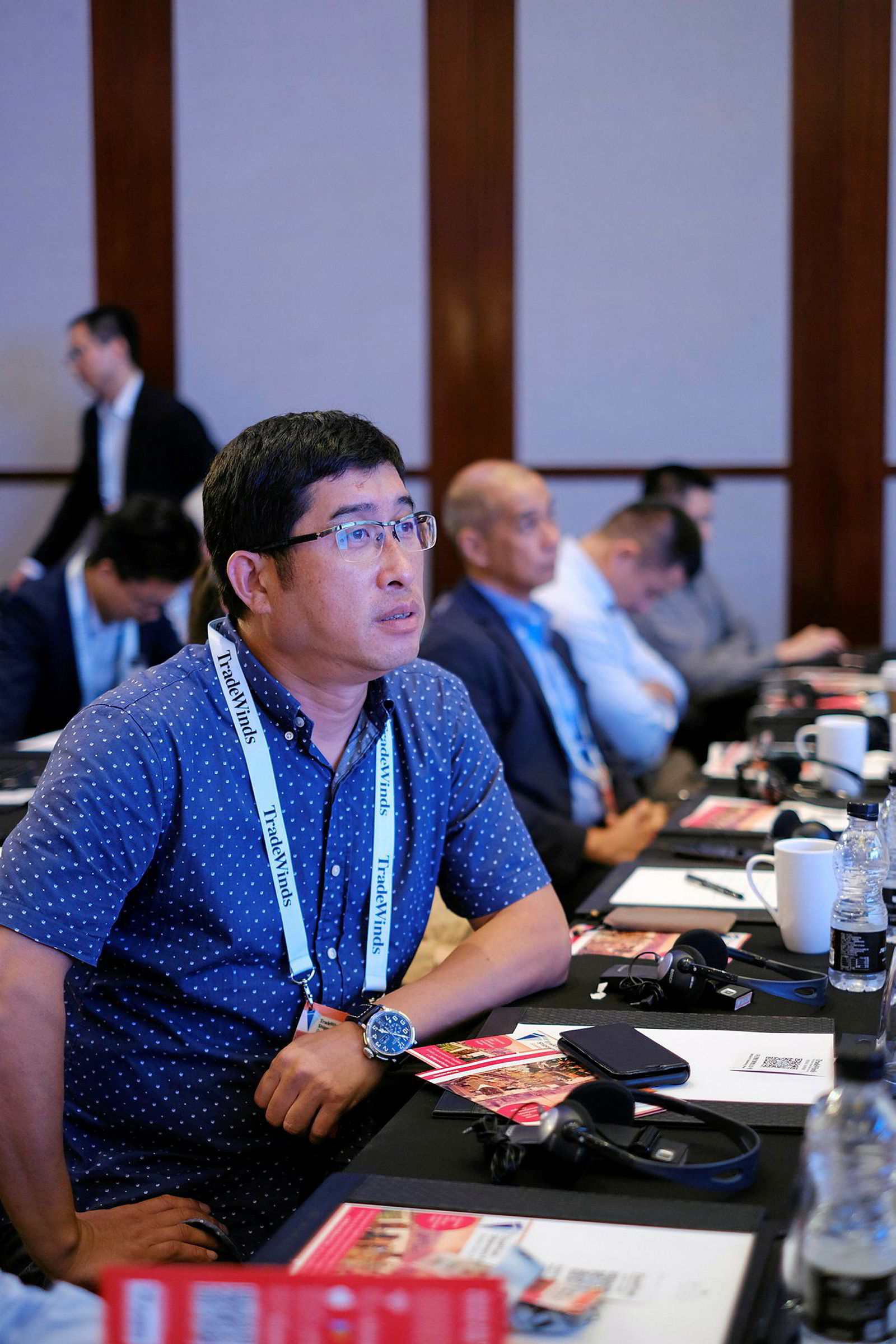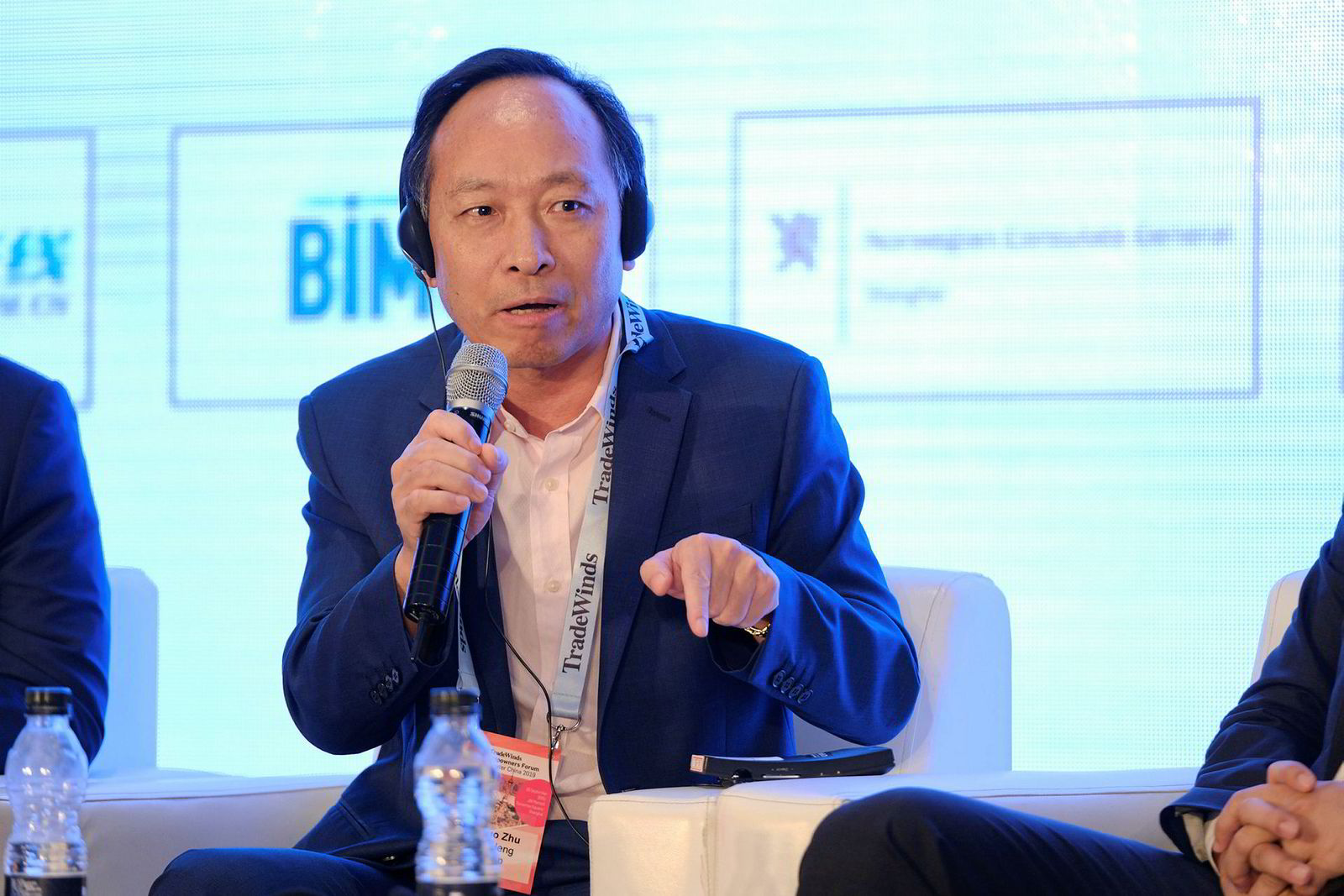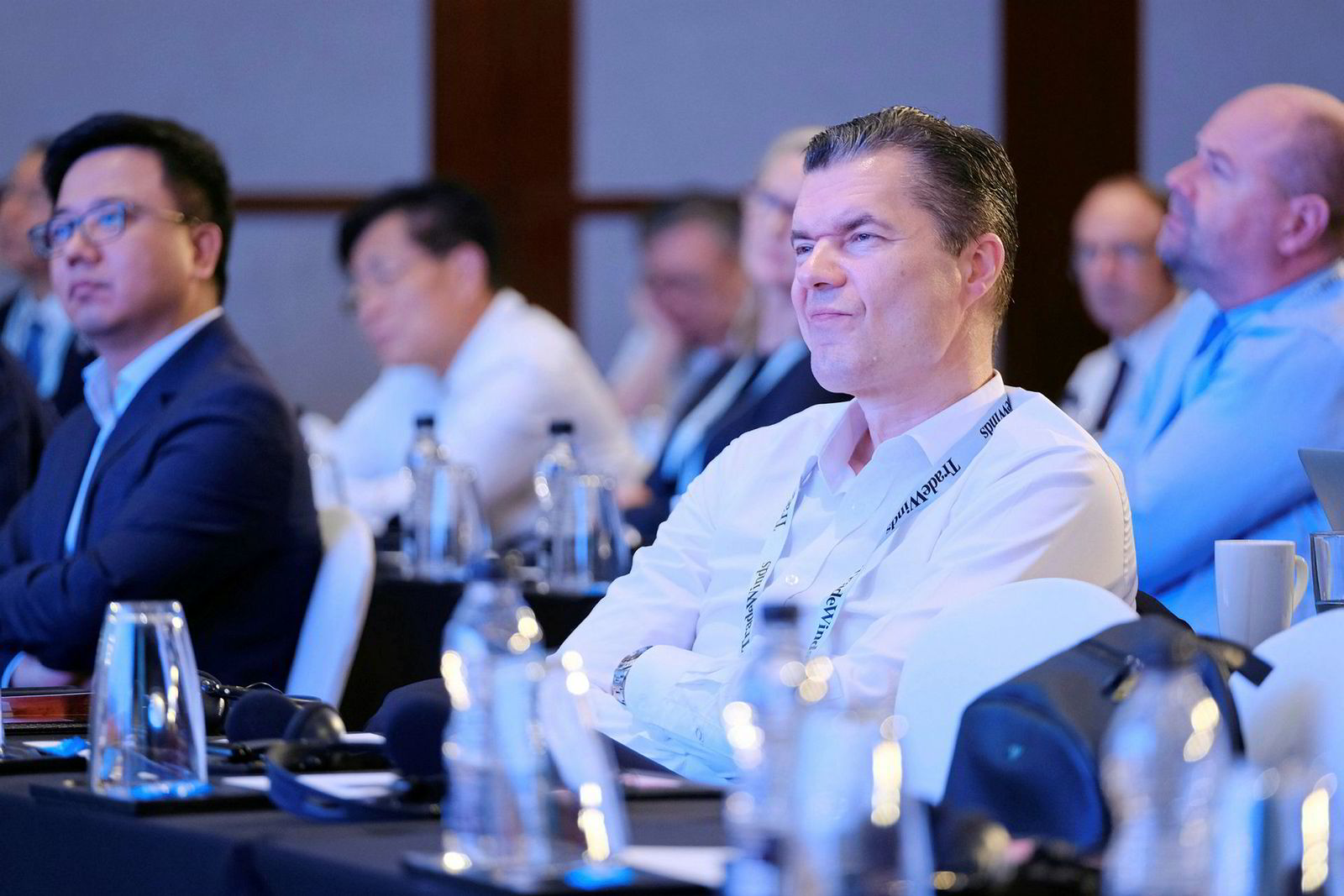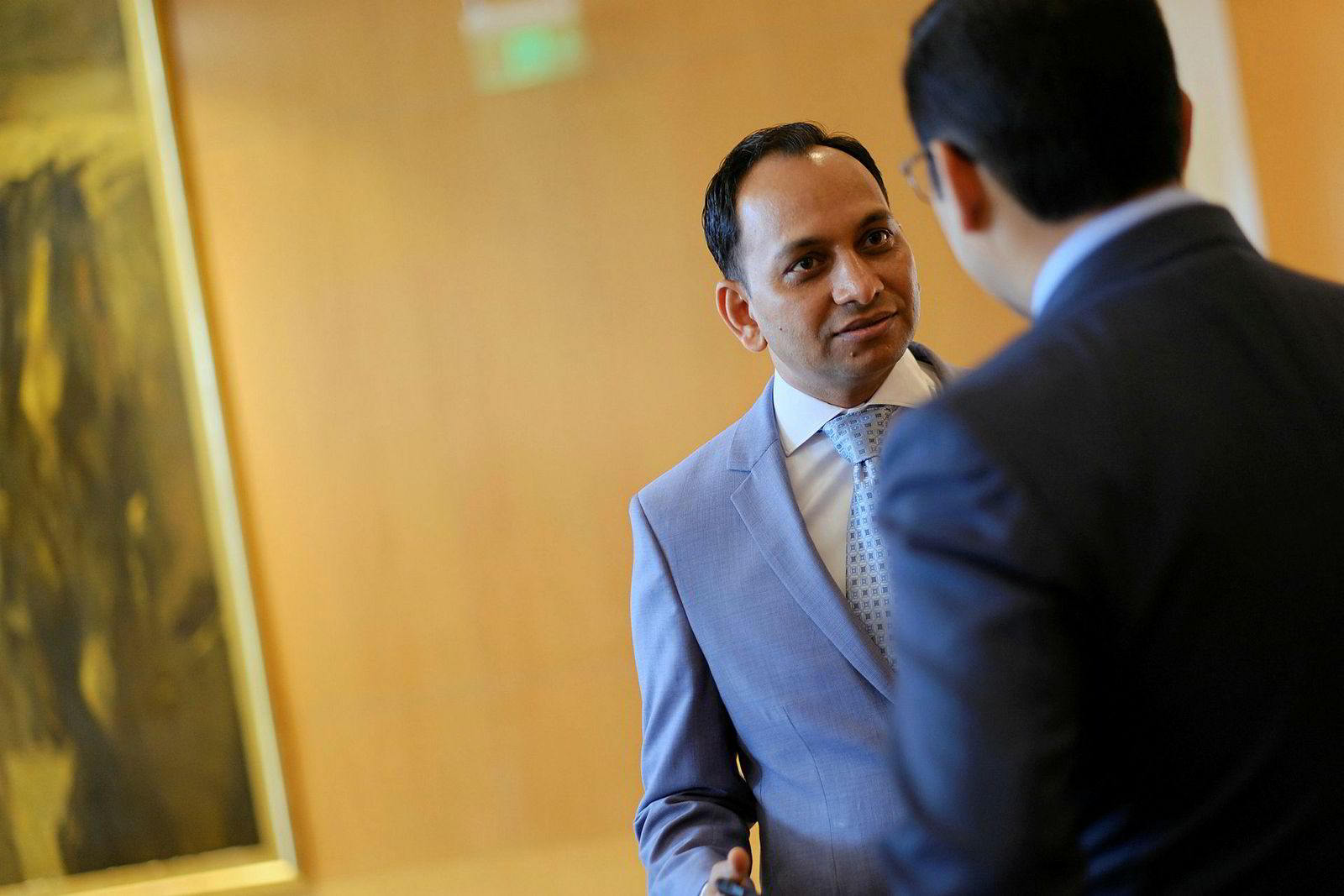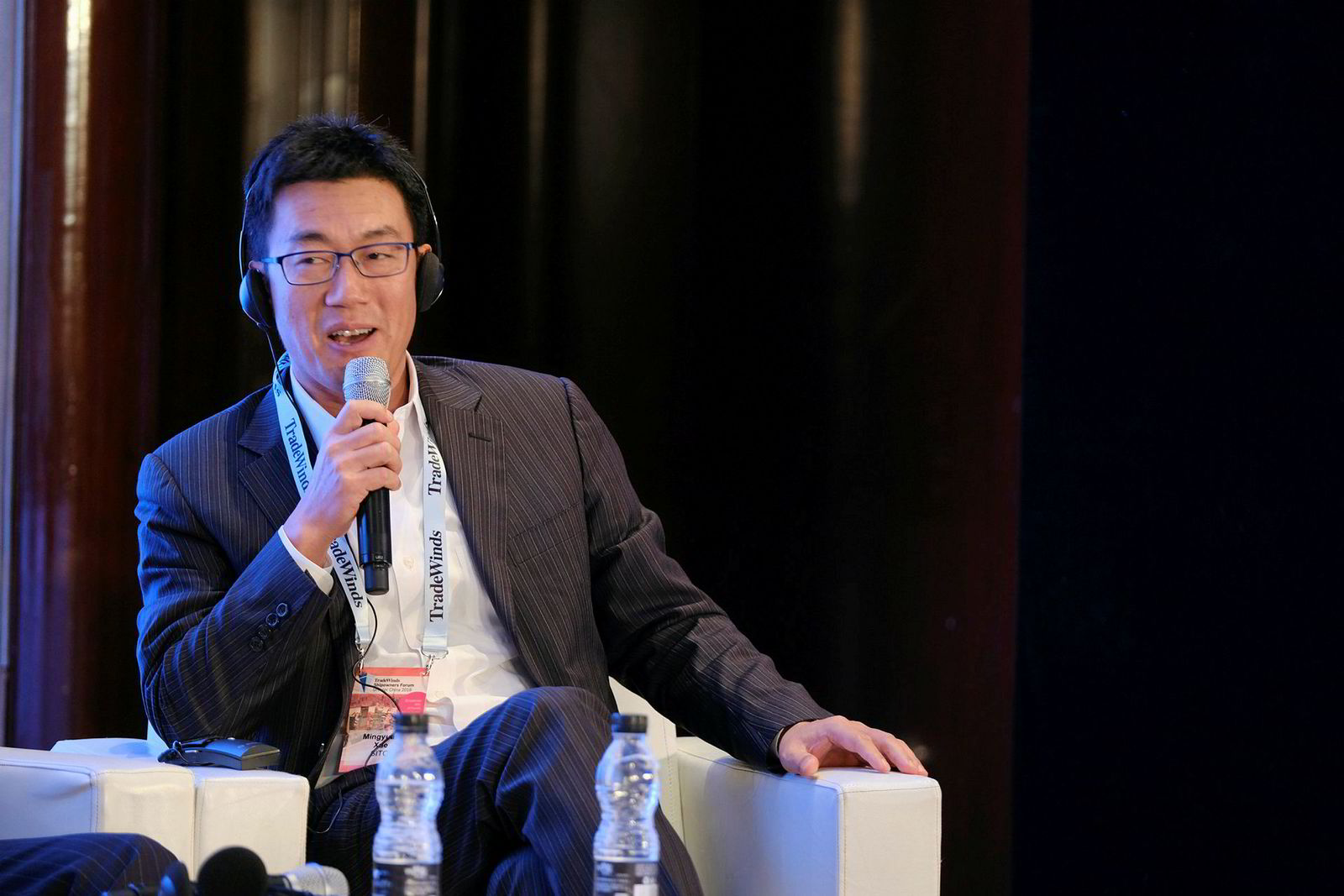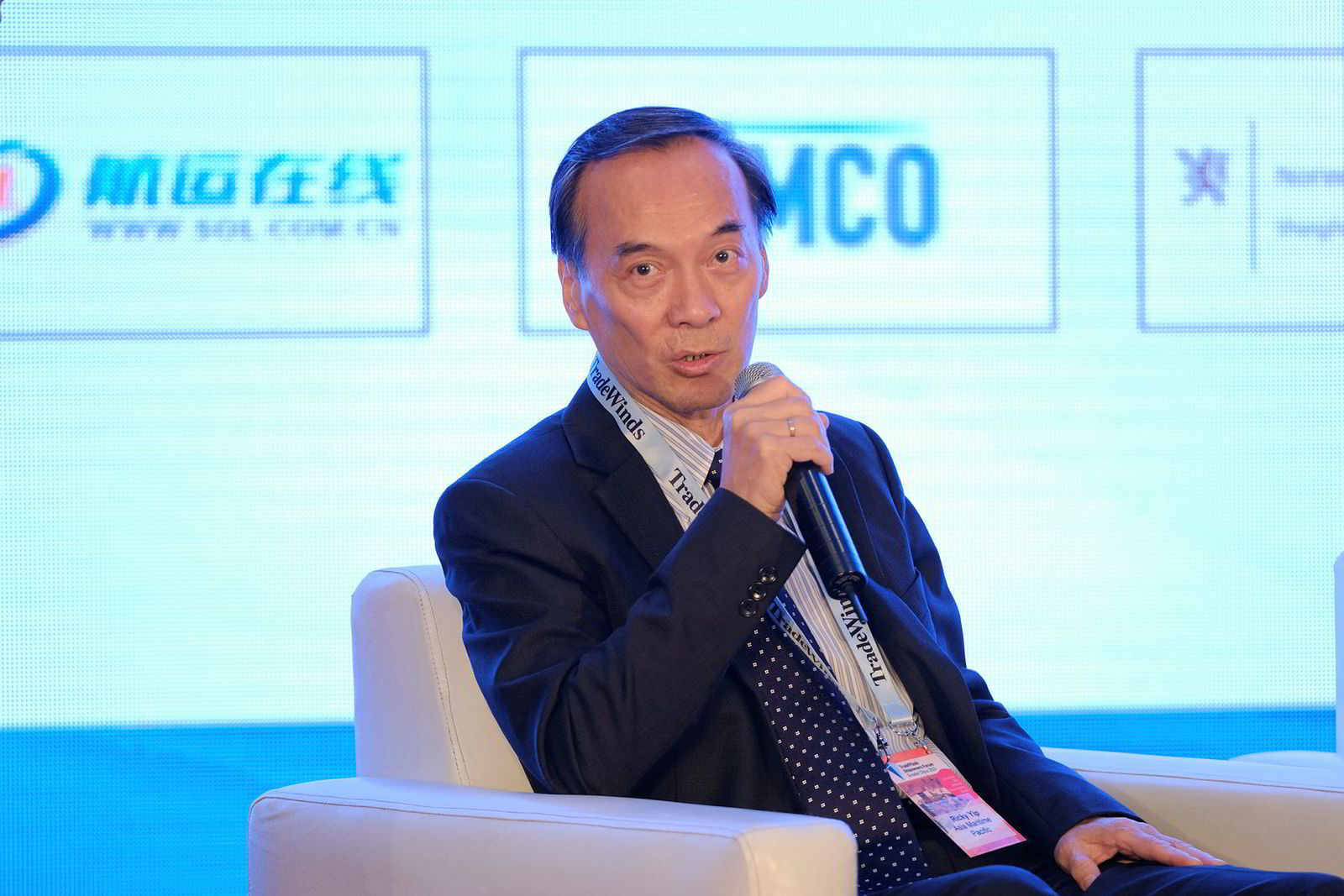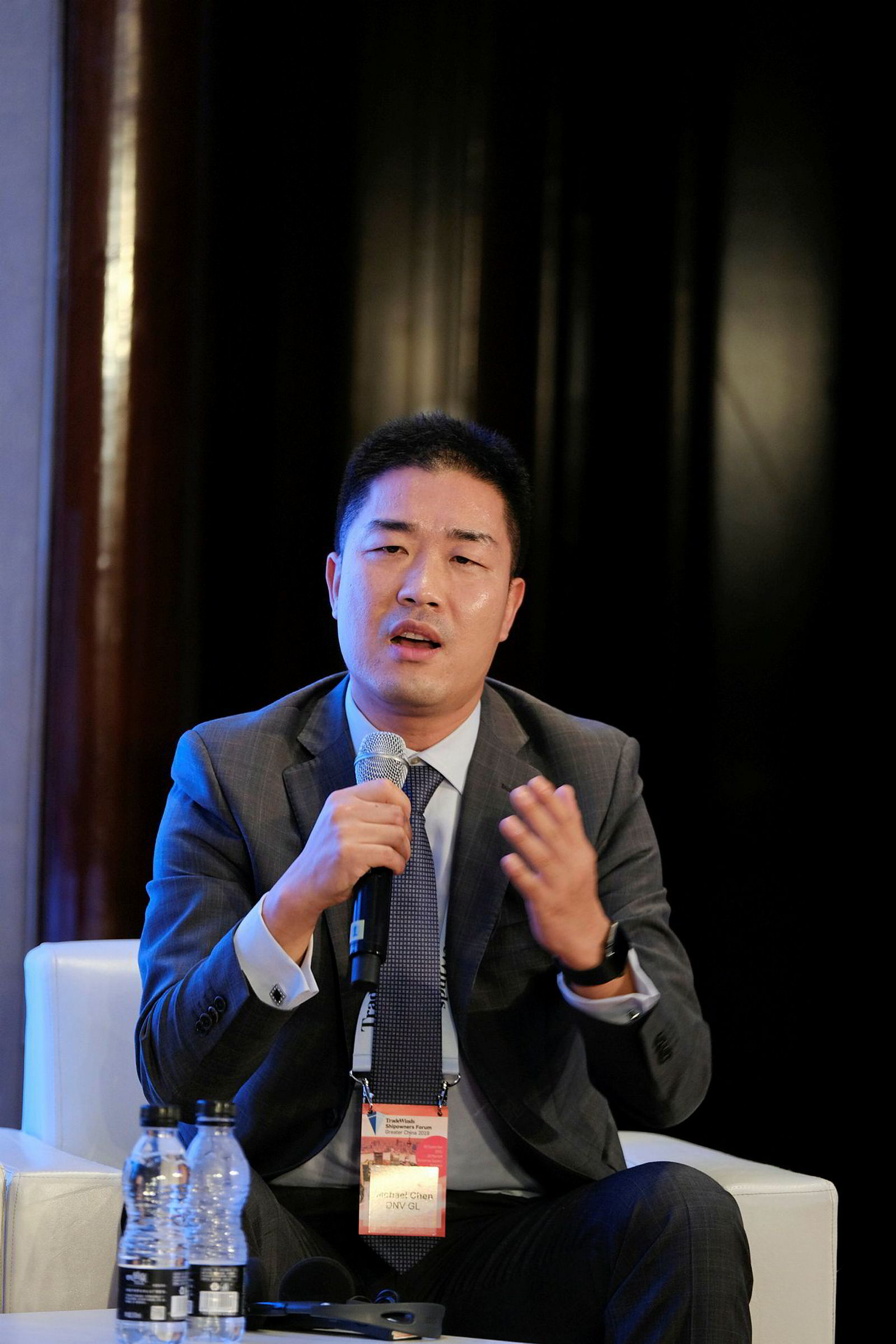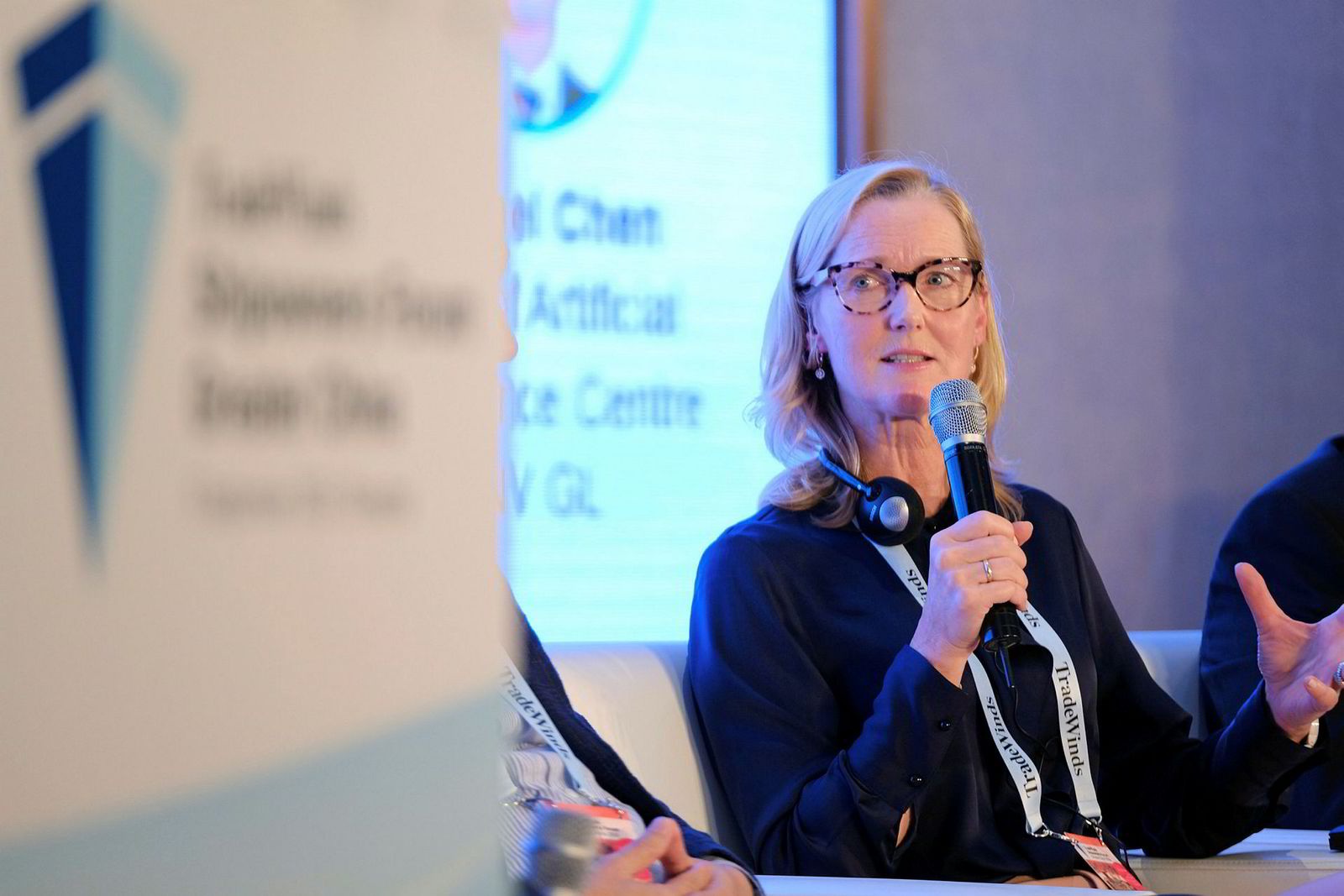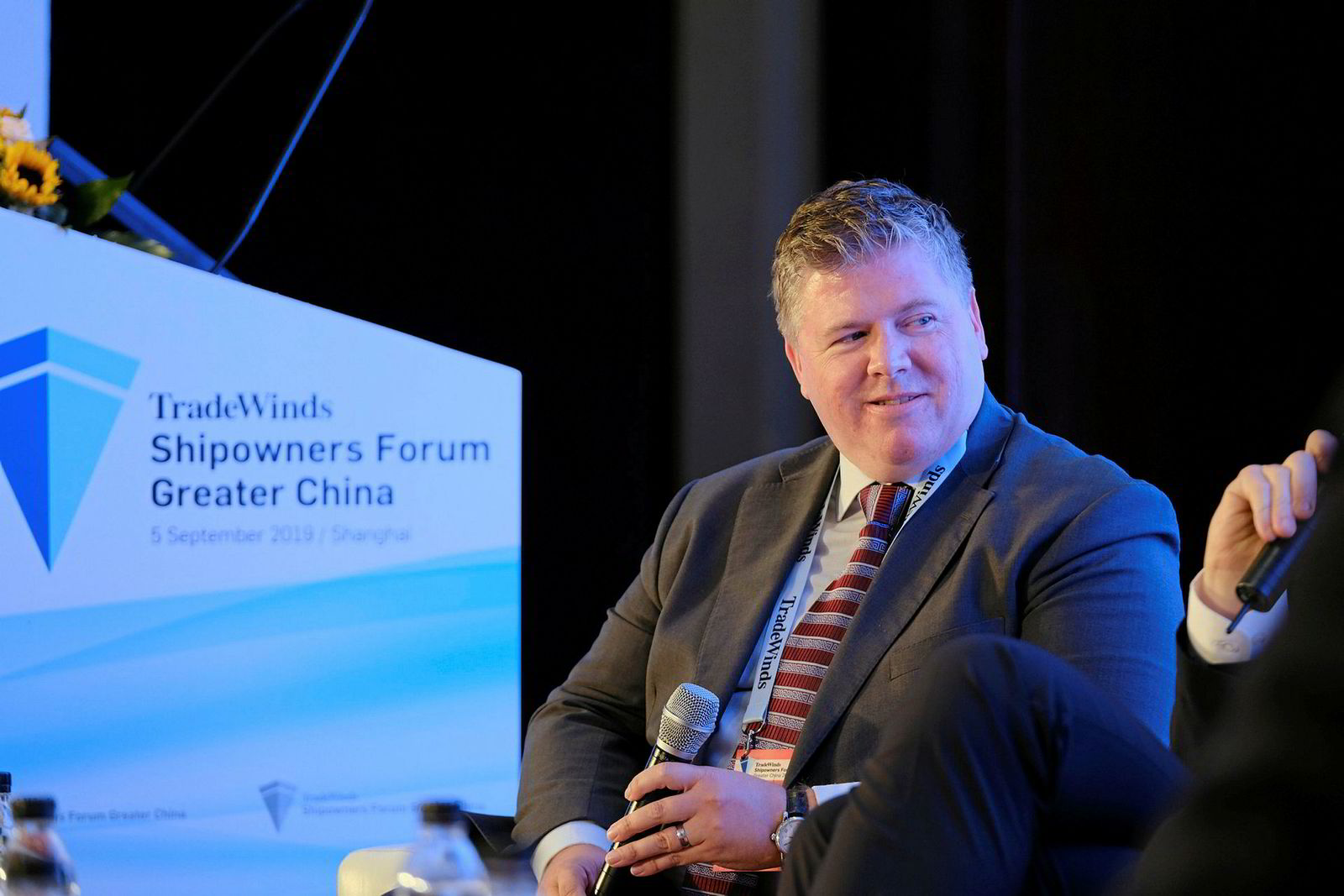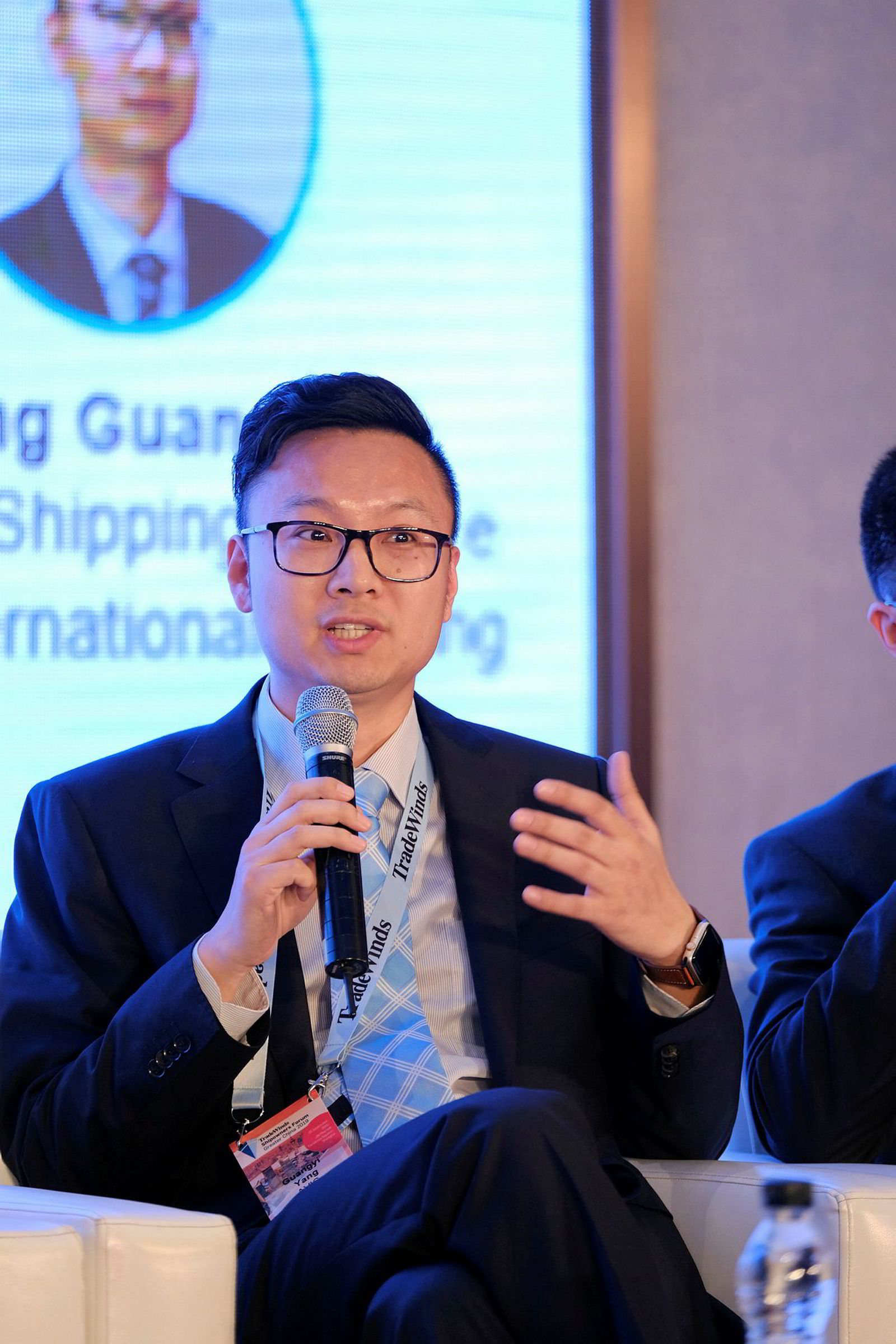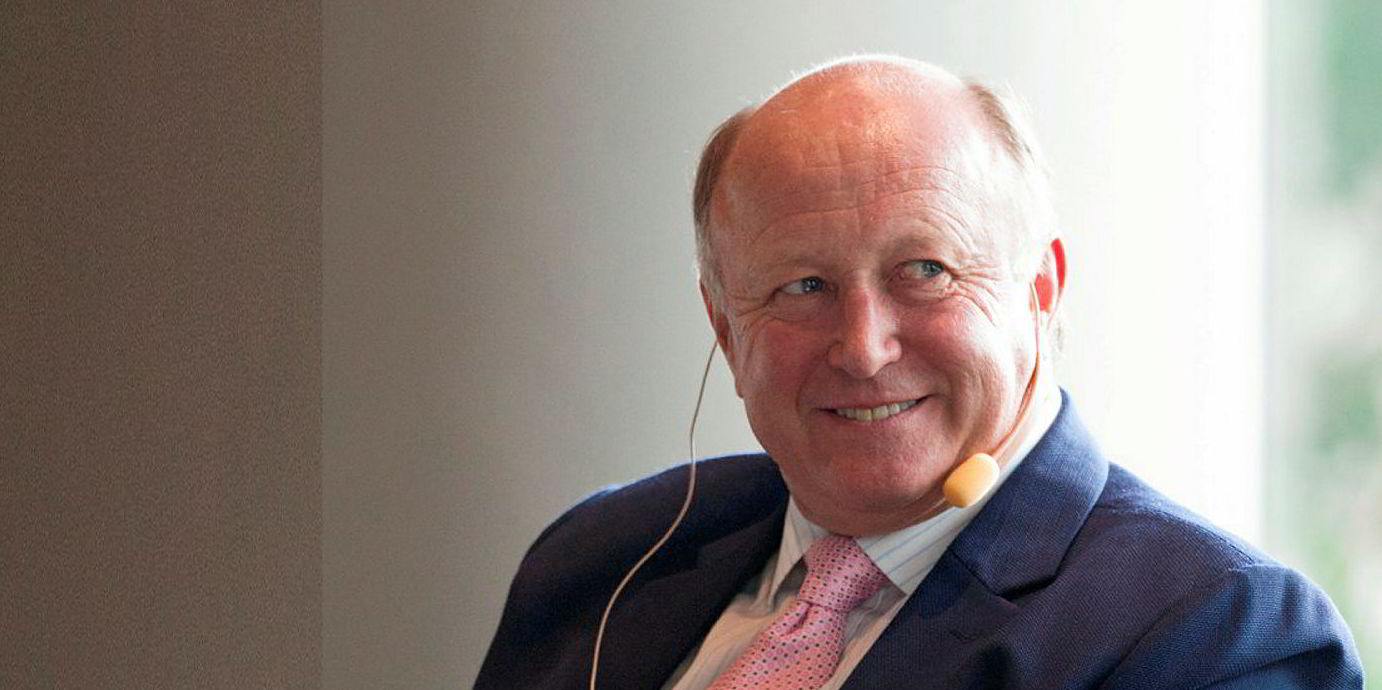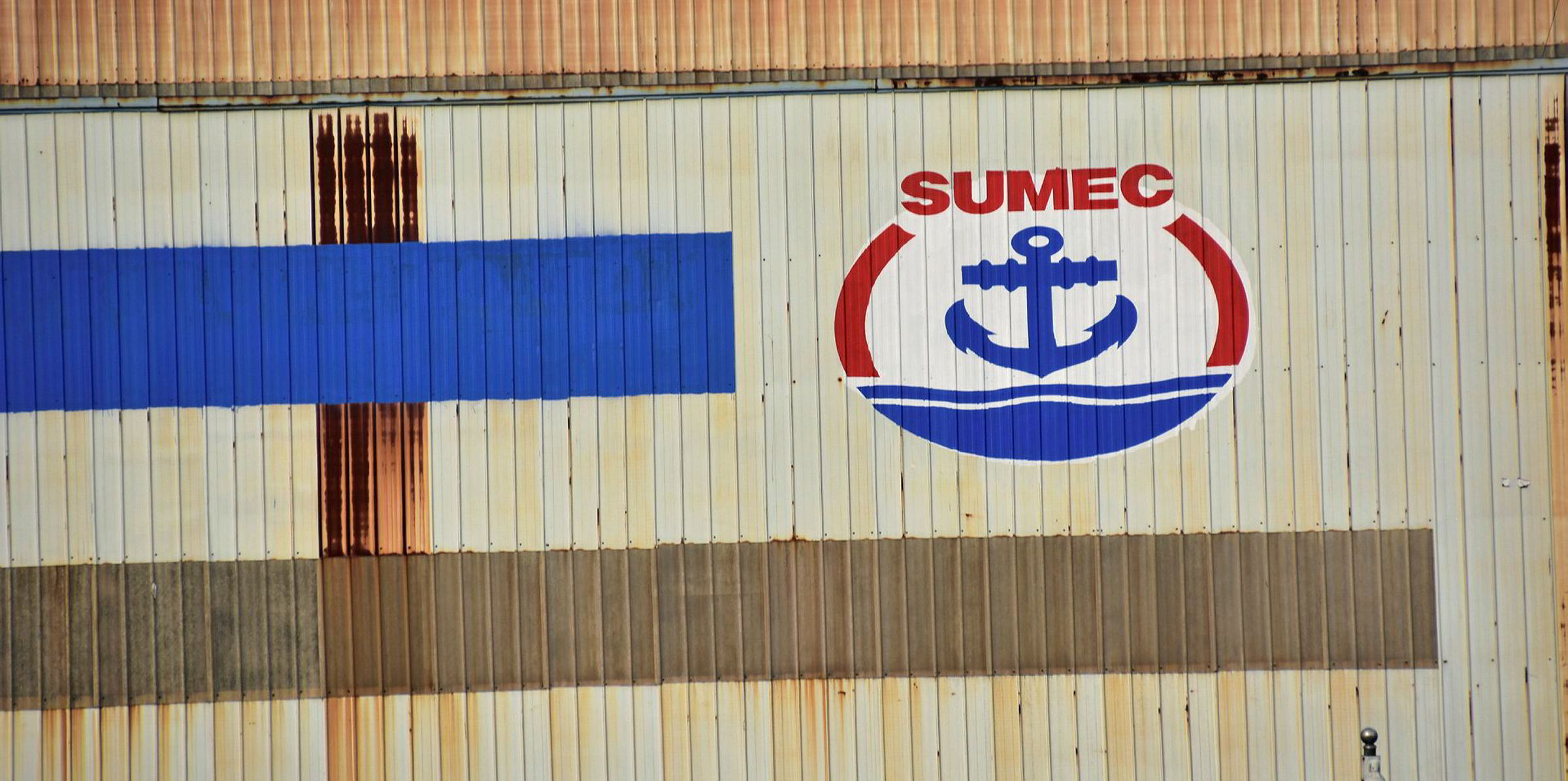Wah Kwong Maritime Transport executive chairman Chao Sih Hing used the TradeWinds Greater China Shipowners Forum to make a firm pledge to keep his family company in shipowning.
Hong Kong-based Wah Kwong has made headlines in the past couple of years, increasingly as a service provider in technical and newbuilding management as well as commercial services for new mainland fleets. But speaking at the Shanghai event, Chao downplayed the importance of the "asset light" strategy in Wah Kwong's overall operations.
"We are committed to the family tradition of ordering, building, and selling ships," said Chao, who recently transitioned into the chairman's role after his sister Sabrina Chao stepped back. "Asset light activities are only a small portion of the business."
Technology was also front and centre at the event, with Orient Overseas Container Line (OOCL)chief information officer Steve Siu among speakers who made the case for technology's transformative powers.
Siu said that some have claimed that OOCL's intensive work on digitalising its business has given him "the biggest data science team in Hong Kong". But the executive said he had not counted heads and could not be sure.
The shipowners present demonstrated different degrees of faith in the digital gospel.
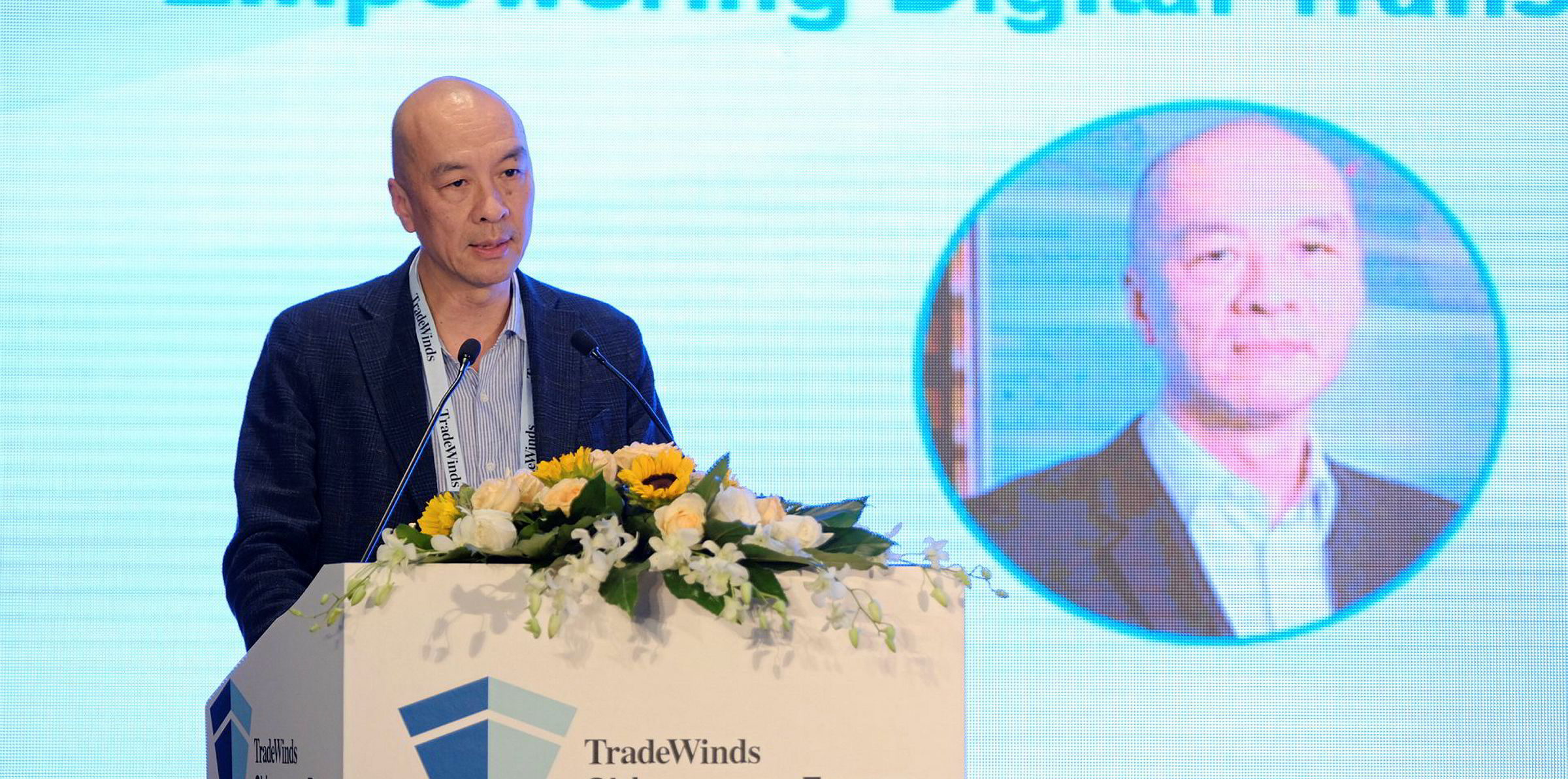
Panelist Li Duozhu, chairman of chemical carrier owner Dingheng Shipping, told delegates the relatively near future will see the shipowners of the world shake down to 10 players, thanks to digital disruption. Crewless autonomous shipping will be the key to survival for a few players who latch onto the new methods.
But Yang Lei, head of trading house-owned Sumec Ocean Transportation, had a little cold water to pour both on the commercial possibilities of artificial intelligence (AI) outside the liner world, and on the prospect for crewless vessels.
AI depends on volumes of data that are much less relevant to capesize chartering than to the ultra-detailed task of managing global boxship logistics, he believes. As for autonomous shipping, the obstacles have more to do with legal liability than with the technical means.
"In 20 years, we will not have unmanned vessels," Yang said. "The cost of a crew is nothing compared to the cost of a ship sinking."
